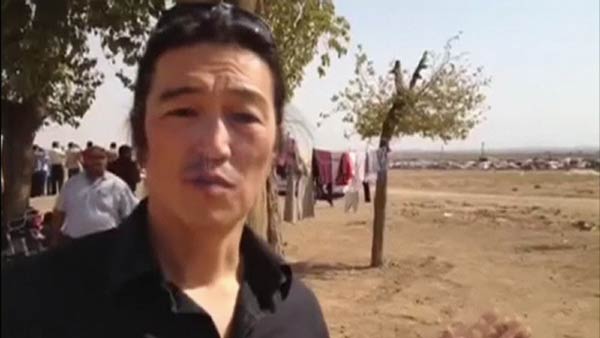Japan faces deadline to free IS hostages
(Agencies) Updated: 2015-01-23 10:31
 |
|
Japanese journalist Kenji Goto reports in Kobani in October 2014 in this still image taken from the website www.reportr.co. [Photo/Agencies] |
Suga said Japan had not received any message from IS since the release of the video. Tokyo lacks strong diplomatic connections in the Middle East, and Japanese diplomats left Syria as the civil war there escalated, adding to the difficulty of contacting the group holding the hostages.
So far, the only initiative made public was an offer by Ko Nakata, an expert on Islamic law and former professor at Kyoto's Doshisha University, along with journalist Kousuke Tsuneoka. Both are converts to Islam.
Appearing at the Foreign Correspondents Club of Japan, Nakata, who is also a former Islamic specialist at the Japanese Embassy in Saudi Arabia, read a message in Japanese and Arabic.
"Seventy-two hours is just too short. Please wait just a bit longer, and do not try to take action immediately," he said, addressing the militants. "If there is room to talk, I'm ready to go and negotiate."
Nakata proposed offering $200 million in humanitarian aid to refugees and residents of areas controlled by the Islamic State, through the Red Crescent Society.
"The Red Crescent Society is operating under the Islamic State's control. Why don't we seek Turkey's mediation and give the money for the people affected by the conflicts in Iraq and Syria? I believe this could be a rational, acceptable option," he said.
A freelance journalist, Tsuneoka was released after being held hostage in Afghanistan in 2010.
Tsuneoka and Nakata visited Syria in September in an unsuccessful attempt to gain Yukawa's release. Goto was seized sometime after late October when he entered the area, reportedly while trying to help Yukawa.
 When it comes to Africa, China's inroads are just getting started
When it comes to Africa, China's inroads are just getting started
When it comes to Africa, China's inroads are just getting started





